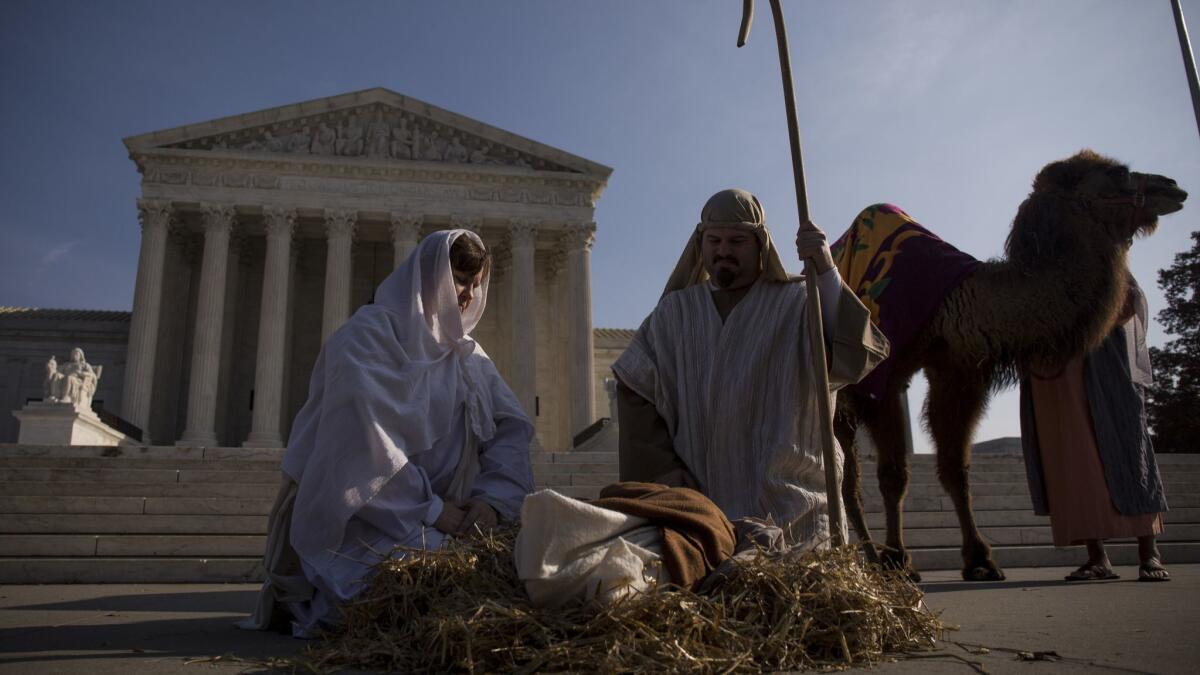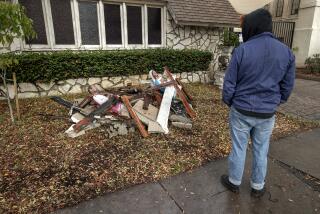What tradition gets wrong about the first Noel

You know the story:
Informed there was no room at the inn, Joseph and Mary took shelter in a stable.
In this humble setting, surrounded by oxen, sheep and other animals, the infant Jesus was born and placed in a bed of straw. His birth was hailed by a worshipful crowd that included three kings bearing gifts of gold, frankincense and myrrh.
Mark Strauss, New Testament professor at Bethel Seminary in San Diego, has seen many Nativity scenes with these features.
They are, he insists, Christmyths.
The inn? Didn’t exist. Straw? Unmentioned in the Bible. Three kings? Court astrologers, not royalty, and the Gospels don’t say how many dignitaries were in attendance — some traditions count 12 — or when they paid homage to the infant. Biblical scholars think the Magi were still on the road when Christ was born.
“We joke about taking the Magi out of the Nativity scene,” said Strauss, “and putting them across the room.”
Strauss, 59, is a believer, not a skeptic saying no to Noel. Fluent in ancient Greek, this evangelical Christian served on the translation committee that produced the 2011 edition of the New International Version Bible. He’s the author of “Four Portraits, One Jesus” and was a consultant on four films, one for each Gospel, now on Netflix.
He knows much about Christmas, and how tradition and popular imagery have added elements that are not found in the New Testament. For example:
“There’s no inn,” he said, “and no innkeeper.”
The New Testament’s original Greek manuscripts use a word sometimes rendered as “inn.” A more accurate translation, Strauss said, is “a guest room in a private house or a shelter, a caravanserai, where caravans stop.”
In St. Luke’s Gospel, Mary and Joseph travel from Nazareth to Bethlehem during her pregnancy. Bethlehem was a tiny village, Strauss said, too small to support an inn. The couple probably stopped at the house of a relative, or a relative’s friend.
Palestinian homes commonly had sleeping quarters upstairs, with ground floor space for domesticated creatures. Since all the sleeping quarters were occupied, the visitors were probably directed downstairs — and the animals, no doubt, moved to another spot.
Jesus was born there — but perhaps not right away.
“The Bible says, ‘While they were there,’” Strauss said. “There is no indication it was the same night.”
Tradition also has added un-Scriptural details to the story. If you heard the Magi were three in number, named Melchior, Caspar and Balthazar, you didn’t hear it from Matthew, Mark, Luke or John.
In the Bible, Strauss said, “just like they are not numbered, they are not named.”
While it’s also commonly believed that Jesus’ father, Joseph, was a carpenter, the manuscripts describe him as a tekton, Greek for “craftsman.”
“He could have been a stonemason,” Strauss said, “or someone who works with metal or wood.”
Strauss is an expert on the New Testament, the part of the Christian Scripture that includes the four Gospels, the Acts of the Apostles — a book credited to St. Luke — the epistles and the Book of Revelation, also called Apocalypse. Yet there are books written at roughly the same time which have not been incorporated into the Christian tradition.
These include the infancy gospels, in which Jesus is born in a cave, often with the assistance of an unnamed midwife.
Traditional Nativity scenes — complete with inns, animals, Magi and straw — may not be biblically accurate, but Strauss still finds spiritual value in them.
“I like the innkeeper,” he said. “It speaks to the spirit of the story, the loneliness and the desperation of the couple.”
To this humble setting, whatever it truly looked like, shepherds and others — angels? Magi? — approached with reverence, as if this infant born to lowly parents were a mighty king.
“It’s just a story of intense contrasts,” Strauss said.
Rowe writes for the San Diego Union-Tribune.
More to Read
Sign up for Essential California
The most important California stories and recommendations in your inbox every morning.
You may occasionally receive promotional content from the Los Angeles Times.











